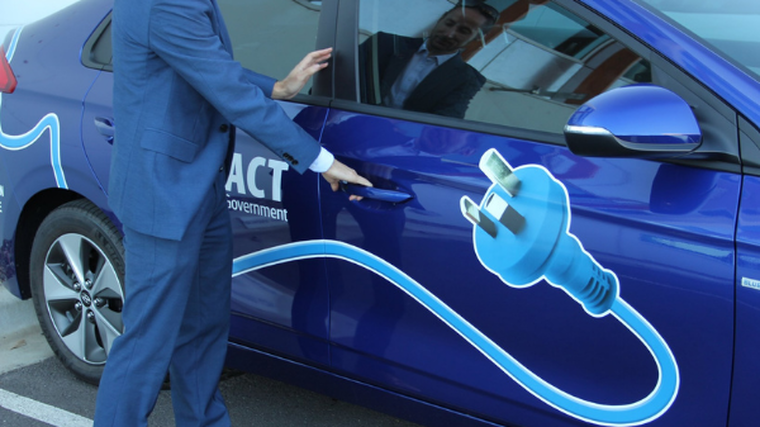Electric car chaos across ditch

The Federal Chamber of Automotive Industries (FCAI) has praised the ACT government’s announcement supporting zero-emission vehicles (ZEVs) while taking a pop on the way forward in other states.
Tony Weber, chief executive of the FCAI, says a recently released parliamentary governing agreement for the capital territory is a welcome boost for environmentally friendly models.
“It demonstrates a government focused on the future health and environmental benefits this technology can bring,” he adds.
“While other governments have short-sightedly settled for quick cash grabs and taxed zero and low-emission vehicles [ZLEVs], the ACT government has developed a long-term vision to encourage their adoption.
“It is heartening to see the smaller states, such as the ACT and Tasmania, lead the way in boosting the adoption of ZLEVs. If only the larger states like NSW, South Australia and Victoria had their foresight.”
Targets introduced by the ACT government include all new ACT vehicles to be ZEVs by 2030, and financial incentives and free registration for them.
Converting the ACT’s public-transport and public vehicles, such as garbage trucks and taxis, to zero-emission technology is also a goal to be met by the mid-2030s.
However, the FCAI has condemned the Victorian state government’s intention to initiate road-user charges on electric vehicles (EVs) from July 1, 2021.
“Once again, we have a state government trying to destroy the path to a greener and cleaner fleet for this and future generations,” fumes Weber.
“Don’t worry about health outcomes, don’t concern yourself about the environment because short-term revenue collection comes first.
“Other countries bend over backwards to increase the use of EVs and other LEVs because they recognise the benefits.
“Are motorists being caught in a petty game in which some states want to establish a new revenue base at the expense of the Commonwealth?
“The FCAI recognises the decline in excise, taxation of motorists and their vehicles, is a long-term issue that needs to be addressed. We also understand road-user charging may play a role in Australia’s future tax regime.
“However, such a transition needs to be undertaken in a holistic and nationwide manner, recognising the importance of EVs and other LEVs. Let’s not kill EVs in their infancy.”
On November 20, Autofile Online reported on what’s happening on the LEV front elsewhere across the Tasman. Click here to read that story.





